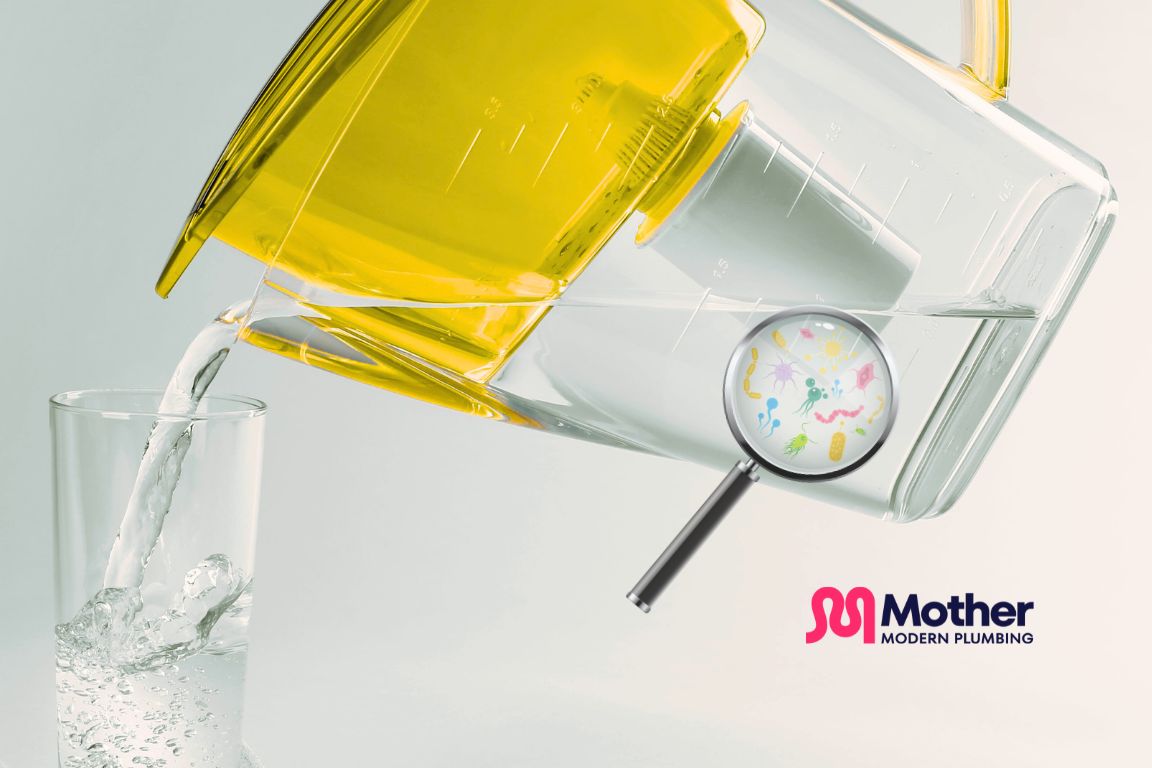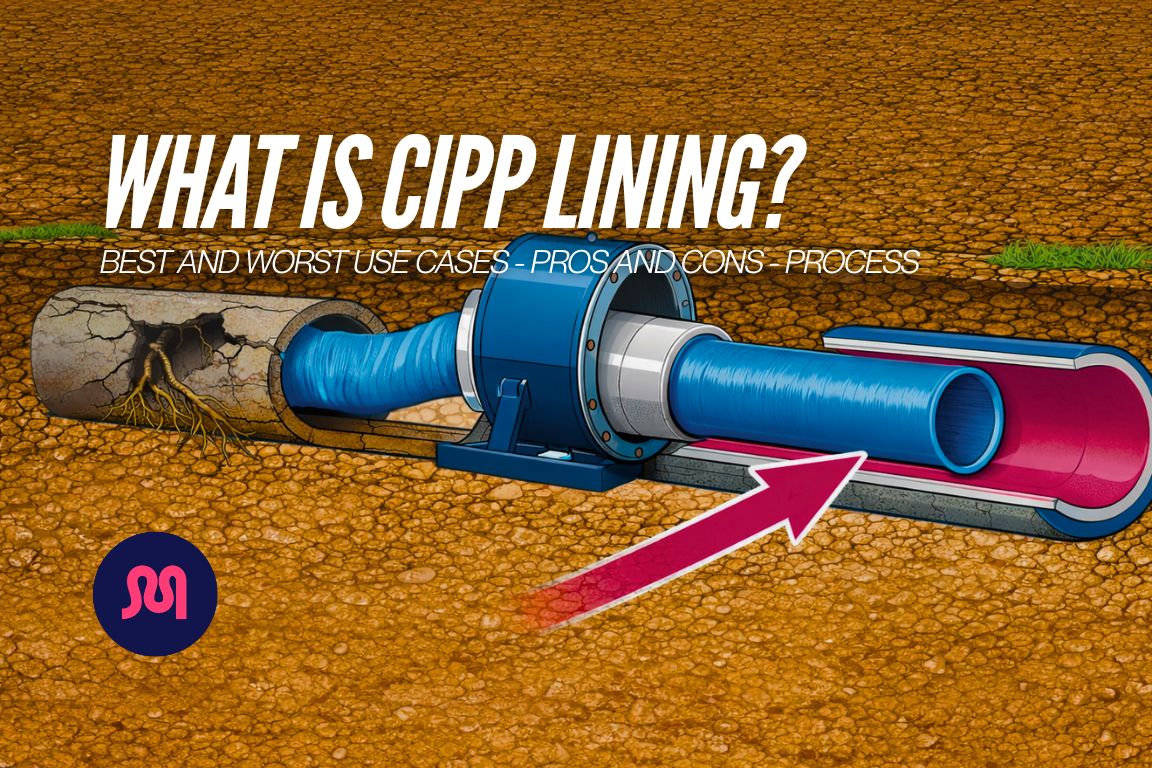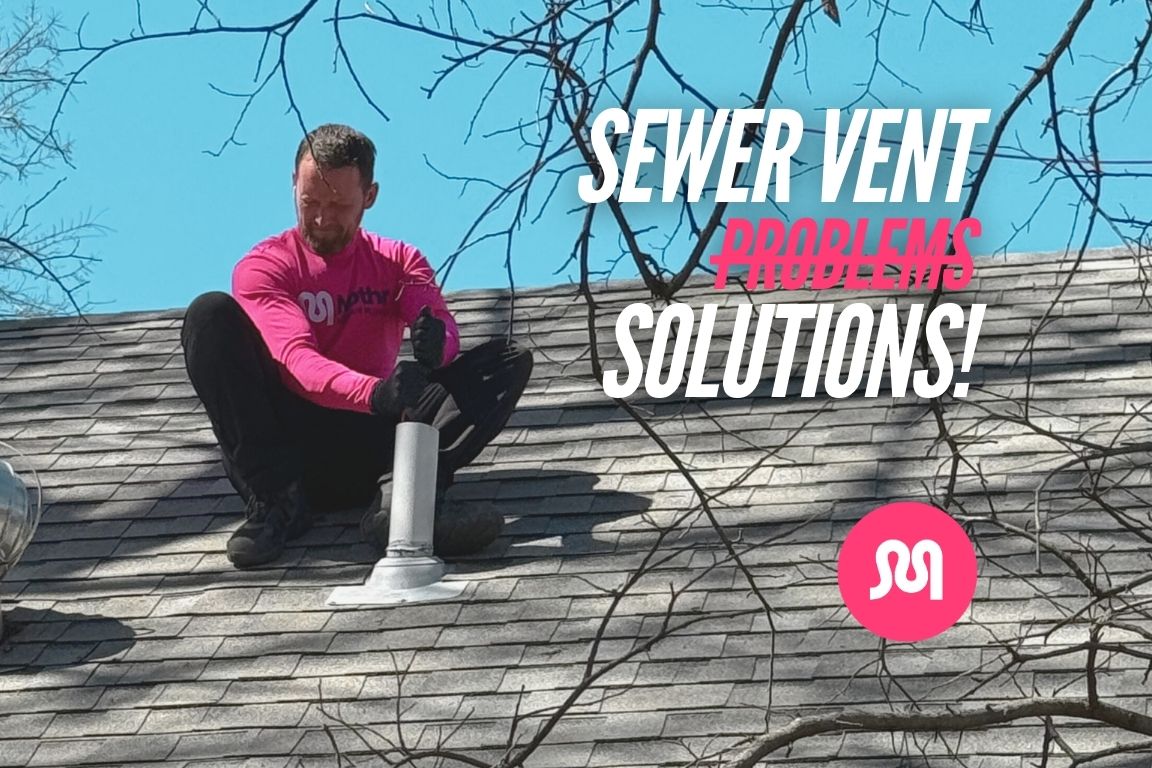10 Things Brita Doesn't Filter Out of Your Water

table of contents
table of contents
It’s a name so closely associated with clean water, many people call any home water filter “their Brita”. So why did water from your Brita filter still give you norovirus?
The truth: you’d be surprised what Brita products don’t filter out of your tap water.
Mother’s team is passionate about water quality. We live and work in Dallas- a region known for hard water full of dissolved minerals, PFAS (“forever chemicals”) and pesticides. We’re constantly looking for better home water filters to make our customers healthier.
In this article, you’ll learn about the 10 harmful things that Brita doesn’t get out of your water supply. Then, our Master Plumbers suggest 2 great alternatives for clean drinking water at home- choose the right one for you based on your budget and lifestyle.
{{whole-home-water-filtration="/services/whole-home-water-filtration"}}
Fast Facts: What Does Brita Not Filter Out?
Standard Brita filters don't remove PFAS, bacteria or viruses from water.
Here are the 10 concerning things Brita leaves in your water supply:
- Bacteria
- Viruses
- PFAS (forever chemicals)
- Lead*
- Pesticides
- Herbicides
- Pharmaceuticals
- Nitrates
- Dissolved salts
- Dissolved minerals
Brita pitchers also don’t filter out fluoride- but since there’s major health risk involved, we left it off our list.
*Brita faucet systems, Brita Elite and Brita Longlast+ filters remove lead; standard Brita products do not.
The risks of contaminants in your tap water
“What’s the big deal?”, you ask. The plain answer: your health and well-being.
Let’s look at the verified health risks and negative effects of each of the 10 contaminants that Brita pitchers don’t remove from tap water:
TABLE: Health risks of contaminants not filtered by Brita pitchers
*Brita faucet systems, Brita Elite and Brita Longlast+ filters remove lead; standard Brita products do not.
What do Brita filters remove from water?
Brita water filters are designed to remove four things from your water:
- Chlorine
- Heavy metals (mercury, copper and cadmium)
- Sediment
- Rust
Getting chlorine out of your water is what makes it “taste better” to most consumers. That said, virtually every home water filtration system removes chlorine.
Don’t get us wrong- it’s great to filter these things out of your drinking water. Most people simply expect more from their filtered water.
Most of Brita’s marketing focuses on improved taste and odor of your tap water- and their filters do that generally well. But when people see “water filter”, they assume there’s a lot more health benefits involved.
3 reasons why DFW homes need more than a Brita filter
Our team of licensed plumbers have lived and worked in the Dallas-Fort Worth Metroplex for a combined century. From sediment runoff in Frisco to forever chemicals in Fort Worth to blue-green algae in the Park Cities, here's why you need more than a Brita filter to protect your home's water quality:
- Hard water. While Brita filters sediment out of water, it doesn't get rid of the dissolved calcium and magnesium that cause calcium buildup on faucets, scale in your water heater, and dry skin after you shower.
- PFAS ("forever chemicals"). These chemicals simply don't break down in the body and lead to cancer, liver and thyroid issues and developmental issues in children.
- Blue-green algae. Algal blooms in Highland Park and University Park lead to that gross "summer water" taste- plus, ingesting blue-green algae is pretty terrible for your health.
Why People Use Brita Water Filters: Pros and Cons
Much like the water filter on your refrigerator, Brita products became popular out of sheer convenience. It’s so easy to turn on the faucet, dump tap water into a Brita pitcher, then pour yourself a glass of water shortly after.
But in terms of sheer health benefits, there aren’t as many “pros” to Brita as many think:
Pros:
- Convenient. Brita pitchers fit almost anywhere in the fridge. They’re easy to access, easy to fill and easy to pour.
- Better water taste and odor. Most bad taste in water comes from chlorine and sediment. The filter in Brita products removes both.
- Cost-effective. As of this publication, most Brita pitchers are $20-40.
- Low maintenance. No installation required. The only maintenance task is a simple filter replacement.
Cons:
- Incomplete filtration. Chlorine and sediment are gone. But PFAS, viruses, bacteria and pesticides remain.
- Clogging concerns. As sediment and hard minerals like calcium and magnesium enter, they quickly clog your filter (and don’t get filtered out).
- Bacterial growth. It’s very easy for Brita filters to become breeding grounds for bacteria, algae and fungi- especially if they aren’t replaced often enough.
- Microplastics? Some high-end Brita products (like Brita Elite) remove microplastics. If you buy a standard Brita pitcher, you’re not as lucky.
Comparing Brita vs Reverse Osmosis vs Whole Home Water Filters
We compared the filtration capabilities of standard Brita pitchers against two better solutions for cleaner tap water:
- Reverse osmosis systems
- Whole home water filtration systems
In the upcoming sections, we’ll discuss both of these options in detail- what they do, how they work, and how they compare to Brita products.
Here’s a quick comparison table of what most Brita pitchers, reverse osmosis systems and whole home water filters do (and don’t) remove from your incoming water supply:
*Not every whole home water filter effectively removes PFAS (forever chemicals)- read the product specs and ask your plumber before making a purchase.
Reverse Osmosis Filters: Your Best “One Sink Solution”
Under sink reverse osmosis systems are great at removing PFAS.
If you want the convenience of a kitchen water filter with enhanced filtration protection, but you aren’t ready to commit to a full home water filter, reverse osmosis is a great choice for you.
Reverse osmosis filters (RO filters) use a five-stage filtration system to clear twelve harmful contaminants from your tap water, including forever chemicals, bacteria and viruses.
Install an RO filter under your kitchen sink. You’ll save a step over Brita products- no pouring into a pitcher and waiting. And you’ll have cleaner, healthier water.
Want to know how reverse osmosis works? Check out our guide to RO systems and why they’re so good at reducing forever chemicals (and more) in water.
{{what-is-reverse-osmosis="/blogs/what-is-reverse-osmosis"}}
When to choose an under sink reverse osmosis system
A point-of-use system is one that’s installed on a single fixture- in this case, your kitchen sink. Here’s how to know if a point-of-use RO filter is the right choice for you:
- You value convenience. One quick trip to the sink is all it takes to get incredibly healthy water- dispensed cold or hot.
- You carry a water bottle everywhere. Buy a reusable water bottle or flask, and fill up at the kitchen sink before you leave the house.
- You don’t have hard water concerns. If you don’t live in a region with hard water, there aren’t as many concerns about mineral scaling ruining your plumbing (or your hair).
How RO filters are better than Brita filters (bacteria and chlorine)
Here are three more advantages reverse osmosis systems have over Brita filters:
- They’re great at fighting PFAS. A Duke University study found that point-of-use RO filters remove 94% or more of forever chemicals from tap water.
- They’re even better vs. chlorine. If you like Brita’s ability to remove chlorine, reverse osmosis does it better. RO systems also remove chloramines- the mix of chlorine and ammonia that’s used to treat your incoming water supply.
- Say goodbye to bacteria and viruses. Microorganisms don’t survive the reverse osmosis filtration process.
Dallas residents: interested in reverse osmosis? Call us anytime and we’ll send a water filtration expert for a consultation within 24 hours.
{{reverse-osmosis-filtration="/services/reverse-osmosis-filtration"}}
Whole Home Water Filters: The Best Overall Choice
Whole home water filtration systems also protect against hard minerals.
The best solution for clean, healthy water in your house is filtering the incoming supply before it reaches your taps and fixtures. Install a whole home water filter where the main water line connects to your house, and you’ll do just that.
Most water filtration systems offer three-stage protection. Our team prefers quality products which provide five stages of protection against all the things Brita filters out- and the entire list of contaminants that Brita doesn’t filter.
An important PFAS note: Not every home water filter eliminates forever chemicals- the ones we install do. Ask your plumber about PFAS filtration if you have concerns.
Today’s best water filtration systems also provide water softening features- the ability to keep hard minerals from crusting your faucets and scaling your pipes and appliances.
Mother’s Master Plumbers like WaterTech products- they’re independently lab-certified to both filter and soften your water.
Join the movement: WaterTech reports 54% of U.S. households have a water filter system installed in their home.
When to install a whole home water filtration system
Considering an upgrade from your Brita filter to a whole home water filter system? Here are a few situations where that’s a great choice for you:
- You drink from multiple taps. You want clean water when you’re brushing your teeth, too! Whole home filtration offers healthier water throughout the house.
- You suffer with hard water. If mineral scaling clogs your water heater, dulls your clothes, stains your dishes and wrecks your hair and skin, a whole home filter helps.
- You have an older home: Whole home water filters don’t just make water healthier- they keep out the minerals that cause old pipe materials to fail early.
What whole home water filters do better than Brita filters
This one’s easy- whole home water filters remove far more contaminants than Brita water filters, and they apply that same protection across your entire home.
Like reverse osmosis systems, whole home water filters save you a step. Ditch the pitcher- just walk to any faucet in your home, turn it on, and get clean, filtered water you can trust.
It’s Time to Choose a Better Water Filter
Brita water filters don’t remove many of the most harmful things from your water- forever chemicals, bacteria, viruses and pesticides stay in your pitcher.
If you get all your drinking water from the kitchen, install a reverse osmosis filter under the sink for effective prevention against the harmful stuff that your Brita misses.
If you want complete protection that delivers healthy water to every tap and fixture, plus adds protection against hard water issues, choose a whole home water filtration system.
At Mother, we care about the quality of your water- and the best solutions for lasting health in your home.
Live in Dallas? Call us anytime with your questions about home water filtration. We’re here to talk, and we’d love to help.
{{whole-home-water-filtration="/services/whole-home-water-filtration"}}




